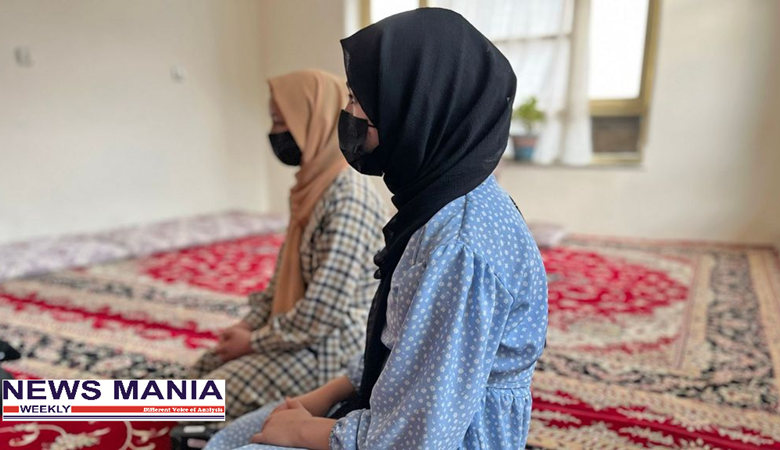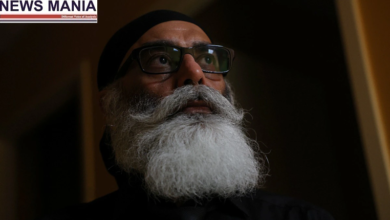Women in Afghanistan are banned from speaking after new Taliban law

News Mania Desk/ Sohom Chatterjee / 11th September 2024
BBC journalist Yogita Limaye recently has been in Afghanistan and experienced the horrors of the new law imposed by Taliban which prohibits the women from speaking outside their house. Their voice must not be heard if they are outside. Living in 2024, this might seem like an uncommon thing to happen but it is the reality of the Afghani women.
Shabana (all names are changed for security reasons), who would have been finishing her graduation anywhere in the world, is not studying at all as she and all the teenage girls of her country have been barred from formal education for three years.
“When we got out, we’re scared. When we’re on the bus, we’re scared. We don’t dare to take down our masks. We even avoid speaking among ourselves, thinking that if someone from the Taliban hears us they could stop and question us,” she said.
The law gives the Propagation of Virtue and Prevention of Vice Ministry – the Taliban’s morality police – sweeping powers to enforce a stringent code of conduct for Afghan citizens.
Shabana continued, “If we can’t speak, why even live? We’re like dead bodies moving around. When I learnt about the new law, I decided not to attend the course any more. Because if I go out, I’ll end up speaking and then something bad might happen. Maybe I won’t return home safely. But then my mother encouraged me to continue.”
The Taliban governance is so strict that the few numbers of women who are to be seen in the streets are covered from head to toe in loose black clothes or dark blue burqas, and most of them cover their faces with only their eyes visible.
Nausheen, an activist, said, “Every moment you feel like you’re in a prison. Even breathing has become difficult here.” This brave lady was one of the many few women who marched on the streets of Kabul and other cities in protest of the new restrictions implemented on them which deterred the women from exercising their rights. However, most of these protests were dealt with violent attacks by the Talibans.
Speaking about how she got detained, she stated crying, “The Taliban dragged me into a vehicle saying ‘Why are you acting against us? This is an Islamic system.’ They took me to a dark, frightening place and held me there, using terrible language against me. They also beat me.”
“When we were released from detention we were not the same people as before and that’s why we stopped protesting,” she adds. “I don’t want to be humiliated any more because I’m a woman. It is better to die than to live like this.”
Recently, there have been videos posted by the women of Afghanistan of themselves on Facebook where they sing songs about freedom, a line of which says, “Let’s become one voice, let’s walk together holding hands and become free of this cruelty.”
The spokesperson of the Taliban government, Hamdullah Fitrat, justified the ordinance by saying, “The law approved by the supreme leader is in accordance with Islamic Sharia law. Any religious scholar can check its references.”
However, a teacher named Shireen has disagreed with this statement. “This is their own interpretation of Sharia. Islam has given the right to both men and women to choose if they want to study and progress.”
“If they say that women’s voices should not be heard, let’s go back to history. There are so many women in Islamic history who have spoken out.”
Shireen, along with some other Afghan women, are a part of a secret network who run secret schools which rebel against the restrictions. Speaking about the fear of being discovered by the oppressors , she said, “Every morning I wake up asking God to make the day pass safely. When the new law came, I explained all its rules to my students and told them things would be more difficult. But I am so tired of all this, sometimes I just want to scream. They don’t see women as human beings, just as tools whose only place is inside the home.”
The mental situation of the female population is not very well there as a psychologist named Karina said, “A friend of mine messaged me to say this was her last message. She was thinking of ending her life. They feel all hope is gone and there is no point in continuing living. And it’s becoming more and more difficult to counsel them.”
Fitrat had an excuse ready when asked about the education situation of the women. He said, ““Our sisters’ education is an important issue. We’re trying to resolve this issue which is the demand of a lot of our sisters. We are awaiting a decision from our leadership. When it is made, we will all be told about it.”
Due to these extreme conditions, many international communities are questioning if they should continue with the financial aids to the country. Karina, however, insisted that the aids must not stop. “I believe that when it comes to aid, the world should continue helping Afghanistan. But when it comes to talking to the Taliban, there should be a rule that in each discussion women must be present. And if that can’t happen, they [the international community] should stop talking to them.”
“The world must care about what’s happening with Afghan women, because if it doesn’t this mentality could easily spread to them, to their homes.”






